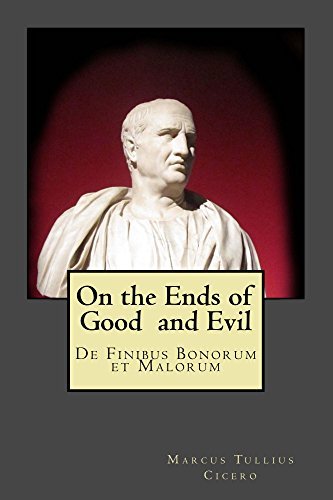What do you think?
Rate this book


104 pages, Kindle Edition
First published January 1, 46
What could be more important to the reader than working out for herself which is the right way to live? —Julia Anna, Introduction
__________
In short, a life that contains, in addition to virtue, a plentiful supply of the other things that are in accordance with nature is not more worth seeking, but more worth adopting, than a life consisting of virtue alone. (4.20)
__________
The way of life they commended was one spent in quiet contemplation and study. This is the most god-like of lives, and so most worthy of the wise person. (5.11)
Lacking the nobler delights of intellectual pursuit, they seek out any kind of company or social gathering instead. (5.56)
Let him make him sift every thing, and lodge nothing in his brain on authority merely and on trust; let not Aristotle's principles be his principles, any more than those of the Stoics or Epicureans; let this diversity of opinions be put before him: he will choose if he can; if not . . .
'However, evening is drawing in and I must return home. Enough, then, for now. I hope we shall often return to these subjects.’ ‘Indeed we shall’, said Cato. ‘There is no finer pursuit.’
“The Stoics hold that the universe is ruled by divine will, and that it is virtually a single city and state shared by humans and gods. Each one of us is a part of this universe. It follows naturally from this that we value the common good more than our own. … And the fact that no one would choose to live in splendid isolation, however well supplied with pleasures, shows that we are born to join together and associate with one another and form natural communities. Indeed we are naturally driven to want to help as many people as possible, especially by teaching and handing on the principles of practical reason.”
At this point one hears the objection that the studies I have mentioned are pursued for the sake of mental pleasure. This fails to grasp that they are desirable for their own sake precisely because the mind takes delight in them in the absence of any utility, and finds joy in pure knowledge even if it should be practically disadvantageous. There is little purpose in inquiring further into such an obvious matter, as will be clear if we ask ourselves the following questions: why are we so fascinated by the motion of the stars, and by contemplation of the heavenly bodies and all of nature’s hidden secrets? Why do we like history so much? We enjoy pursuing the smallest points, worrying over areas we have left blank, and trying to fill in what is incomplete.
"Now, from whichever Prudence decides to be the object of the primary natural impulses, will arise a theory of right and of Moral Worth which may correspond with one or other of the three objects aforesaid. Thus Morality will consist either in aiming all our actions at pleasure, even though one may not succeed in attaining it; or at absence of pain, even though one is unable to secure it; or at getting the things in accordance with nature, even though one does not attain any of them. Hence there is a divergence between the different conceptions of the Ends of Goods and Evils, precisely equivalent to the difference of opinion as to the primary natural objects. — Others again starting from the same primary objects will make the sole standard of right action the actual attainment of pleasure, freedom from pain, or the primary things in accordance with nature, respectively.
Slow he pierced the swift with arrows, standing shot them on the wing